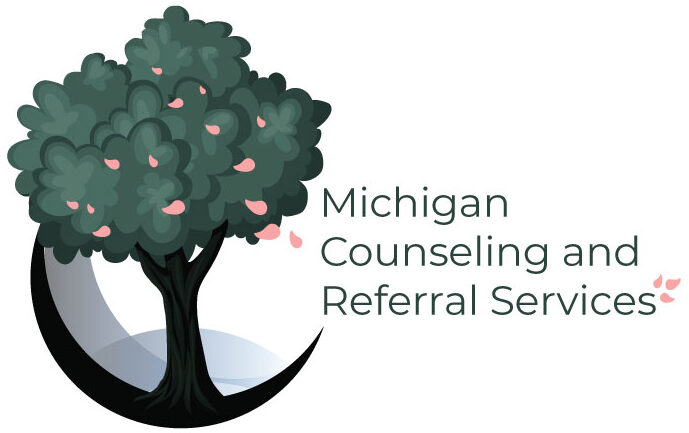Table Of Contents
What a Therapist Should NOT Do
Have you ever been in a situation where a therapist has done something questionable? Boundaries can be sticky in therapy due to its friendly-feeling nature. I would like you to know what a therapist should NOT do in this article. Let’s chat about how to see therapist red flags.
Boundaries in Counseling
Regardless of where you come from, adult figures in your life modeled boundaries for you from an early age. As a result of this, your boundaries with other people are absolutely a reflection of your caregivers’ boundaries.
Boundaries are the very first thing I teach to all of my patients when we start therapy together. In relationships, both professional and personal, clear and concrete boundaries are absolutely essential to successful therapy. You may be thinking, what do professional boundaries in therapy look like?
This can seem confusing right away because therapy, although a type of health treatment, feels different than other medical treatments. Maintaining a close therapeutic relationship with your therapist is not only important; it is a requirement for you succeed in therapy. If you want a good therapeutic relationship, pay close attention to the rest of the article!
Examples of Boundary Violations in Counseling
The following are some instances where you as a patient may find yours and your therapist’s boundaries compromised. I will give you some tips on how to handle them in this article.

Your (Overly) Friendly Neighborhood Therapist
Any good therapist will be able to foster a healthy therapeutic relationship with you. Firstly, you should both be on the same page as to what your therapist’s role is. I have seen it time and time again where people misinterpret a therapist’s words on what their relationship is. To a patient, the therapist may seem more like a friend.
I want to be as clear as possible without sounding too blunt, but A THERAPIST IS NOT YOUR FRIEND. Trust me, it hurts me to say this because there are tons of patients I have had that I would love nothing more than to take to coffee and give a great big hug. However, this would be incredibly unhealthy for you due to the perceived power dynamic therapists have when you disclose intimate details about yourself to them, among other issues.
Your Overinvolved Therapist
Most therapists are not somebody who is a crisis resource at all hours of the day in the outpatient setting. I have seen therapists try to be everything for certain patients they have. In every case it has caused the therapist a very high level of distress. You should NOT have your therapist’s personal cell number. You also should NOT be contacting them after business hours for anything other than scheduling. The ER, 911, and 211 are all great resources you can use if you feel like you need emergency support after hours. We need a break, too!
The reason for all of this is that a therapist causes their own burn out. Therapists have the ability to control their level of burn out (outside of an abusive workplace). We should take the proper precautions in the beginning of therapy with you to explain healthy boundaries clearly. A therapist with poor boundaries cannot teach you how to have healthy boundaries. I see myself as a model for my patients as well as a consultant and advocate. And you likely see us that way, too!
Your Therapist Needs Therapy
We therapists are emotional supports for you! It is what we love to do and in many cases we feel with you. However, if you are feeling like everything you tell your therapist makes them overly emotional it may be time to find a new therapist. Let me explain. First off, there is nothing wrong with a therapist being overwhelmed with emotion in a session with you. I’ve gotten teary-eyed in many sessions, myself. It is normal! People are wired to feel for each other.
If your therapist is constantly losing themselves over your stories, though, chances are that they have some things they need to work through that are affecting your treatment. I am absolutely NOT blaming your therapist for being triggered. Unfortunately, for a lot of folks being triggered happens quite a bit, let alone in therapy. If I know something is a trigger to me, as a therapist it is my responsibility to manage it in the healthiest way I can. As somebody in the field, I put forth the notion that we need to be conscious of our own mental health needs so that you don’tProviders need support from their providers, NOT their patients.
Your Therapist has Needs, Too!
There are also examples of therapists and patients becoming romantically interested with each other. This is inappropriate on all levels and should be avoided at all costs as a patient. Mental health providers are the strictest providers in terms of when we are allowed to be romantically involved with a patient. Don’t quote me, but I believe that psychologists and other mental health providers must wait 20-30 years after the patient’s discharge date to begin seeing them. Us social workers are unable to befriend patients for life. Once you are my patient, you’re stuck with me in that role forever! Honestly, I prefer this because it keeps the boundaries clear and healthy.
We all have romantic desires and needs and that should be celebrated! However, like anything else, if your therapist has poor romantic boundaries with you how are you supposed to have healthy romantic boundaries with others?

Final Thoughts
Remember, that the most important point in this article is that I want you understand boundaries with your therapist. There is a power dynamic in therapy where the therapist seemingly has power, knowledge, and dominion over you because of you offering them intimate details about your life. Being vulnerable with someone can feel like you are extending a piece of yourself to them that you struggle to control, which is essentially what is happening in therapy.
Even though it feels this way, you do in fact hold a significant amount of power. You control everything in therapy (often times without realizing it). Never forget that you can cut it off if you ever feel like it is not beneficial or is harming you because of poor therapist boundaries. Chances are if your gut doesn’t feel right about these boundary violations, LISTEN TO IT. Feeling uncomfortable around someone is usually a tell-tale sign that they may not be what you need right now.
If you want to discuss what a therapist should not do more in depth, feel free to reach out with below!
Also, if you are looking for therapy and are located in Michigan, feel free to use my contact form!
